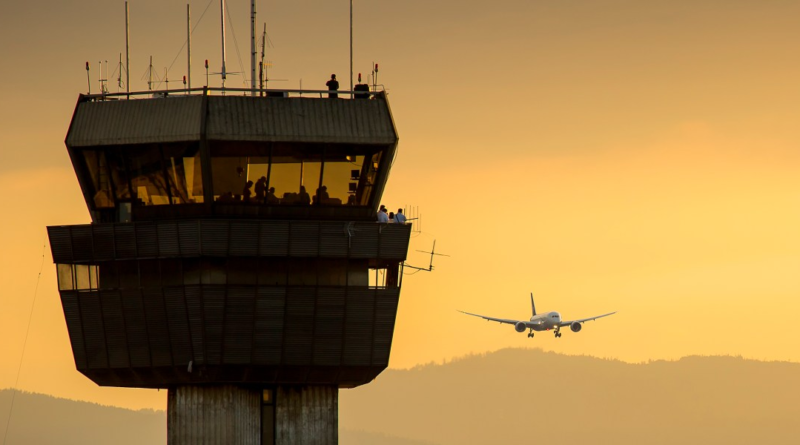Congress passes $105 billion bill to ease air traffic controller shortage as planes keep nearly crashing on the tarmac
Congressional negotiators have agreed on a $105 billion bill designed to improve the safety of air travel after a series of close calls between planes at the nation’s airports.
House and Senate lawmakers said Monday that the bill will increase the number of air traffic controllers and require the Federal Aviation Administration to use new technology designed to prevent collisions between planes on runways.
Lawmakers agreed to prohibit airlines from charging extra for families to sit together, and they tripled maximum fines for airlines that violate consumer laws. However, they left out other consumer protections proposed by the Biden administration.
The bill was negotiated by Republicans and Democrats who lead the House and Senate committees overseeing the FAA, which has been under scrutiny since it approved Boeing jets that were quickly involved in two deadly crashes in 2018 and 2019. The legislation will govern FAA operations for the next five years.
The Senate could vote on the 1,069-page measure as early as next week, but it could be delayed if senators try to attach unrelated bills. FAA is operating under a temporary authorization that expires May 10, and Congress might need to pass another extension.
The House approved its version of the bill last year, but a Senate committee approved a different version in February after fights over several provisions, including ones dealing with the training and retirement age of pilots.
In the end, negotiators dropped a House provision raising the mandatory retirement age for airline pilots to 67; it will remain at 65. Both chambers had already sidestepped a highly charged issue by narrowly rejecting a proposal backed by small airlines to let aspiring pilots count more time spent in simulators instead of flying planes toward reaching minimum experience standards.
The FAA has a shortage of about 3,000 air traffic controllers nationwide, and near misses, in which planes nearly collide on the tarmac, happen frequently—several times a week, a New York Times investigation found last fall. Sen. Maria Cantwell, D-Wash., chair of the Senate Commerce Committee and one of the negotiators, said the final bill shows “that aviation safety and stronger consumer standards are a big priority …. It is also the first major upgrade to air traffic controller hiring in decades.”
There are currently about 14,000 air traffic controllers working in the U.S., according to the FAA controllers’ union — a notch above the 13,000 who were members of the union’s predecessor in 1981 when then-President Ronald Reagan fired nearly all of them for striking.
The bill directs $67 billion specifically to hiring and retention, and mandates the FAA to close its staffing gaps. The agency has for years complained of an air-traffic controller shortage due to long hours and complexities in the hiring process; it has recently taken steps to fast-track hiring and mandate more rest periods to prevent near collisions.
One of the most contentious issues in the bill turns out to be a provision that would allow an additional 10 flights per day longer than 1,250 miles to and from Reagan Washington National Airport, across the Potomac River from Washington, D.C. Delta Air Lines and some Western lawmakers wanted to add 56 flights. The House said no, but a Senate committee approved 10 flights, or five round trips — and that made it into the final bill.
“We were pushing for more, but if we get five, we’ll take five,” Delta CEO Ed Bastian said in an interview this month.
United Airlines — which dominates less-convenient Dulles Airport, 25 miles west of the nation’s capital — opposed the idea. Lawmakers from Virginia and Maryland said Monday they were “deeply frustrated” at the provision, arguing that National is already too busy. They pointed to a close call there between two planes earlier in April, calling it a “flashing red warning light,” and a choice of convenience over safety.
Lawmakers in both chambers rejected a proposal from consumer groups to give state officials power to regulate airlines, but the administration separately cut a deal letting 15 mostly Democratic states help the U.S. Transportation Department enforce federal consumer-protection rules.
Some other provisions in the bill:
— The Transportation Department will create a “dashboard” so consumers can compare seat sizes on all the airlines, but lawmakers stopped short of setting a minimum size.
— The bill would write into law that airlines must pay a refund to customers for flight delays – at three hours for a domestic flight and six for an international one. The Transportation Department issued a similar regulation last week, but laws are harder for future administrations to change.
— When airlines offer travel credits instead of a refund, the credits must be valid for least five years.
— Maximum civil penalties against airlines that violate consumer-protection laws would triple, from $25,000 to $75,000.
— Starting next year, new airline planes must have cockpit voice recorders capable of saving 25 hours of audio, up from the current two hours, to help investigators. This won’t apply retroactively to planes already in use.
— Requires the FAA to increase oversight of aircraft repair shops in other countries, a key demand in recent years by U.S. airline unions, which claim the foreign shops aren’t as safe.
— Requires the FAA to create a new system for tracking and locating high-altitude balloons. This became an issue in February 2023 when a Chinese balloon drifted across the entire U.S. The military shot it down off South Carolina, but not before Secretary of State Antony Blinken canceled a high-level visit to China in response to the incident.



